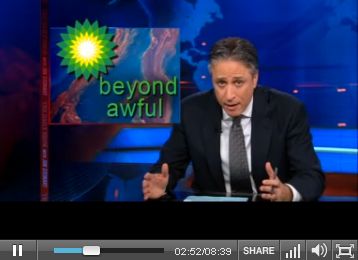Of the many things lacking in the response to the BP spill, responsibility ranks pretty high on the list. From President Obama’s reluctance to reverse his decision to expand offshore drilling, to BP’s shameless attempts to play the innocent victim card, and the far right’s attempts to pin the blame on environmentalists, responsible words and actions have been in short supply.
So it’s been refreshing to see at least some high-profile public figures attempting to reverse that trend.
In what could be the first inklings of a mounting wave of political push back against the reckless drill-baby-drill mentality, several political leaders from coastal states including California Gov. Arnold Schwarzenegger (R) and six U.S. senators, have spoken out in defense of their states’ coastlines and common sense by calling on Obama to reverse his offshore drilling decision.
The senators included Ben Cardin (D-Md.), Robert Menendez (D-N.J.), Barbara A. Mikulski (D-Md.), Frank R. Lautenberg (D-N.J.), Sheldon Whitehouse (D-R.I.), and Bill Nelson (D-Fla.), who, as I noted in an earlier post, wrote a letter [PDF] to Sens. John Kerry (D-Mass.), Lindsey Graham (R-S.C.), and Joe Lieberman (I-Conn.) in March calling on the three to keep offshore drilling out of the climate bill they were working on. That letter was unfortunately ignored, but now the senators have a more visible platform from which to trumpet their concerns, and it’s good to see that they are using it.
Even still, much more is needed. Despite recognizing the unacceptable risks posed by a cavalier policy toward offshore drilling, the senators stopped short of recognizing the unacceptable risks posed by our oil dependence as a whole. Instead they reiterated Obama’s claim “that domestic oil production is an important part of our overall strategy for energy security,” adding that “it must be done responsibly, for the safety of our workers and our environment.”
“Responsibility,” “safety,” and “energy security” are not terms that should be used in the same sentence as the phrase “oil production,” unless juxtaposed against it. Given the threats of climate change, peak oil, and the thousands of oil-related air pollution deaths that occur every year, it’s hard to see how any policy except a policy to aggressively shift us away from the use of oil could possibly be considered responsible with respect to the safety of our workers, the general public, our environment, or our energy security.
As Grist’s Jonathan Hiskes pointed out last week, there may never be a better opportunity for our political leaders to make this case to the public. We have to demand that they do so. It’s the only responsible thing to do.


